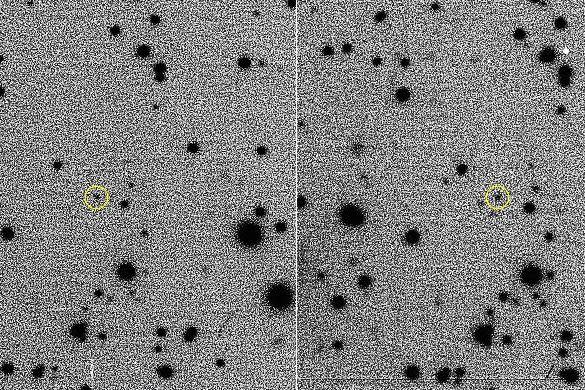Alien asteroid from another solar system spotted orbiting the sun backwards

An asteroid from another star system has been spotted sharing Jupiter’s orbit around the sun - but travelling in the wrong direction.
The bizarre rock is the second interstellar space object to be found in the solar system.
But the new 1.8 mile wide rock named 2015 BZ509 appears to be a long-term resident - it is thought to have shared Jupiter’s orbit for over 4.5 billion years.

According to the Cote d’Azur Observatory in France, the new asteroid is unique because it circles the sun in the opposite direction to all of the planets and every other object in the solar system.
Dr Fathi Namouni, a member of the team studying the object, said: "How the asteroid came to move in this way while sharing Jupiter's orbit has until now been a mystery.
"If 2015 BZ509 were a native of our system, it should have had the same original direction as all of the other planets and asteroids, inherited from the cloud of gas and dust that formed them."
After examining computer simulations, it’s thought that the asteroid joined the solar system 4.5 billion years ago when the sun was part of a tightly packed star cluster.
Co-author Dr Helena Morais, from the Estadual Paulista University in Brazil, said: "The close proximity of the stars, aided by the gravitational forces of the planets, help these systems attract, remove, and capture asteroids from one another."
Since asteroids and comets carry organic chemicals and water, the discovery could shed light on the origins of life on Earth, say the scientists.
Additional reporting by Press Association.

 Yahoo News
Yahoo News 